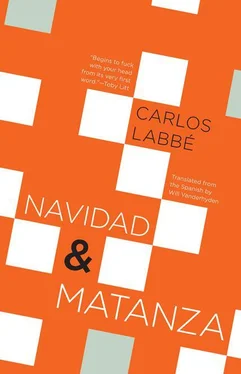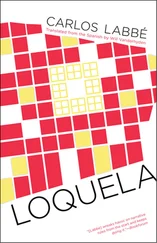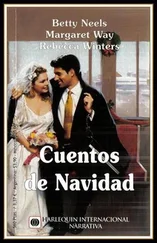When and where is the meeting? I agree that we should create a system that avoids repetition of squares. I also think that if we had more time to develop the fragments the quality would be higher (I’ve never understood more time as necessarily resulting in longer texts).
Clearly we shouldn’t write for children, rather we should write like children (although this might frighten young readers), since it’s true that young readers are essentially indefinable (tending to shy away from fixed categories). There’s nothing worse than a children’s book written for mothers.
With respect to children’s books as objects, I think that, as a religious person, you might be interested in something I came across in my research. I don’t know if you know this, but one of the first publications exclusively for children was a hieroglyphic bible, that is, text and drawings laid out next to each other, so that a child could read it by describing the drawings (like comics in newspapers). The book is from like the seventeenth century and the pictures of it on the Internet are very odd. It’s called The Hieroglyphical Bible, you should check it out. I own a book by Lewis Carroll with a prologue by Leopoldo María Panero where he discusses at length why Lewis Carroll wrote for children. The text, written in a slightly schizoid way, is good, and since this theme interests you, I can lend it to you if you’d like.
Well, the words have run out, it remains only for me to give thanks.
•
FROM: Viernes
TO: Lunes, Miercoles, Sabado, Domingo
DATE:
SUBJECT: I’ll want you like this: recalling what’s forgotten, your face poking out of a dirty pile of sodden towels, panting, sometimes pretty, sometimes ugly, and the saddest thing is that my cruel examination will last only a fraction of a second, because I’ll walk by on the avenue and in that moment look absentmindedly up at the window, seeing you covered with dozens of towels like a zombie. It won’t be an insult, just the opposite, the line of the horizon flashing in your pupil, hollow because you’re only here, I repeat, for a fraction of a second. I won’t be there but I’ll see you. Wretched. Remnant. Mine.
Cheers, it’s very important that we set up a meeting for the end of the week. We should decide what to do if people land on the same space.
Also we should roll all of the dice. The novel will be bullshit if we only have one day to write; I insist that our texts have a respectable period for development.
I am sending this message to you because I don’t know how the hell to send it to everyone at once, I need you to do that for me, thanks.
V.
•
FROM: Sabado
TO: Domingo
DATE:
SUBJECT: She’ll enter the room and, as a blast of moisture hits her face, realize that it’s been locked all day. She’s been out in the street for a long time looking for B. She doesn’t know his face, or his name, just the initial. Still, not knowing why, she feels she’ll find him. The delicate shape of his head from behind, his shoulders, the name, the quiet, understanding smile, the difficulty speaking, the gelled and messy hair. He might turn around and suggest that they sit down, that they speak, that they search. A passing gleam in which name, face, moisture, laughter, three bears and a wound, a garden, a white stone among many, never alone, please, that gleam that lasts only a fraction of a second and as it appears someone else shares; everything will overlap, no, another word, it’ll come together, it’ll converge in the name. Soon, however, it’ll be of little importance, because curiously, as Rimbaud and the Evangelist simultaneously say, “life is elsewhere.” She’ll patiently retrieve the towels from the walls, she’ll hang them on the balcony, she’ll tell him on the phone how strange the prank was, again she’ll look for him until he comes.
What do I know? In any case, the fundamental thing is this: we’re not fucking infallible, being a Christian is not to be less wrong, or being wrong is not to be bad, or being imperfect is also compatible with success. Maybe you’ll meet someone who loves this fragility, the twisting, everything, someone who can also be this way, and everything will be fine. What I told you the other day makes sense, but it doesn’t have to be the truth.
Domingo, it’s very late. I’ve already written my brand new episode. Viernes has made you his secretary? I’ll do the same, please forward my chapter to everyone. We need to have a meeting, but this weekend I’m leaving and have to leave. I’d like to be at the fucking meeting. Would it be possible to have it sooner? I agree about the repeated squares, but only to a certain extent (it’s also fun to watch people organize things to make something new, in one way or another, that isn’t identical and fits in every way, variations on a theme, I don’t know, for some reason the stories sometimes cross each other but are in a way independent, right? Don’t you think?). The timing is a little problematic; it seems the trick would be to write something about the progression. I don’t know. Take care.
Sabado
•
FROM: Domingo
TO:
DATE: 09/14/2002
SUBJECT: Wet towel. I remember it wrapped around you.
All I do is think about what someone said to me, about what I say, about what I’m saying, about what I’ll someday dare to say. I go to my room and write, I come to the silver room and write to you, later I lie down and pray. What I always want is to pray without words, but I’m nowhere near the “full-time mystics.” It’s just that sometimes words exhaust me. They are, how to put it, communication, tool, pleasure, and doubt. Forgive the complaints and the affectation. I can’t avoid it. That is to say, yes I can, but I must speak.
The meeting for the novel-game was brief and insignificant, but now I’ll go to bed feeling that everyone had more than enough to say to each other. At least everyone seemed to be happy about having to read and write. Your fragment was praised in passing, by Viernes if I’m not mistaken, as a marvel of concision. Or was it Jueves. I don’t know. My words, I stain everything, almost everything, you know. About Wednesday, an open day, regrettably, Viernes suggested that a friend of his write. He says that he has a rational, essayistic style that no one else has. We all agreed. It’s worth a shot.
I don’t have a strong opinion about the problems you brought up in your email. To my taste everything is fine as we set it up, and I like the idea of people landing on the same square. Forced intertexuality. Goodbye and thank you.
Domingo
I MUST ADMIT THAT I abhor articles that begin this way: Life imitates art. I deplore equally both pretentious and self-referential journalism, and above all, journalism that lacks documentation. Art — I am not saying anything particularly original — doesn’t imitate life, nor vice versa, for the same reason that people normally hang mirrors in the bathroom or behind the door and not on the bedroom wall facing the bed. This circumlocution serves to justify me: as I listened to Carmen Riza, Alicia Vivar’s first grade teacher, an image of myself in this particular moment that I had eight years ago came into my mind. The certainty — though that sounds emphatic — that I’d spend a great deal of time in front of the computer writing an article about an international child-trafficking network. Narrative anticipation , a term I’d not heard since my days in university.
When she disappeared, Alicia Vivar was going into eighth grade at Santiago College, where she’d been enrolled since she was four years old. The teacher, Carmen Riza, taught her to read and write, to add and subtract, to know the differences between the kingdoms of the natural world, and also to cut paper with scissors. But mostly she remembered Alicia’s exceptional work in violin class. For more than three years, Alicia composed the variations that a group of fifteen young violinists, accompanied by the teacher on piano, performed during the school’s award ceremonies each December. According to Carmen Riza, her Song of the Sand is still played in a civic performance at the end of the year. She didn’t excel as a violinist — says Riza — in fact she was the third chair of the second row. But I appreciated her solemnity and that she never placed importance on her ability to invent melodies. She didn’t even talk about it. On any given day she’d come in with her lined staves and hand them to me: This is the Song of the Sun, she’d say, this is the Song of the Bush, of the Mean Bear, the Song of Hands, the Song of Evening, those are the ones I remember. It must’ve been about twenty songs. The only one we didn’t perform was the Song of the Corridor. She gave me the sheet and started to cry. She wouldn’t tell me what was wrong. Before I sent her home she said quietly: it’s just so hard to play.
Читать дальше












